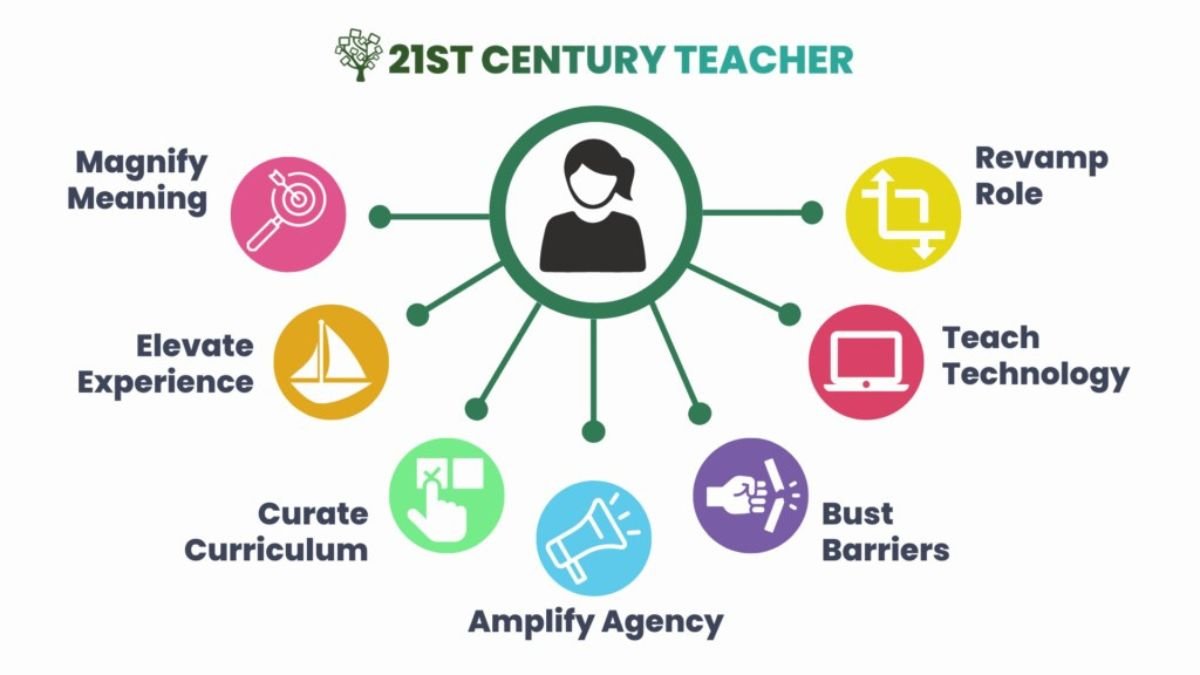In today’s educational scenario, teachers are no longer limited to just teaching lessons. Modern education requires holistic development of students, technological proficiency, and innovation. Amidst this change, B.Ed. (Bachelor of Education) training provides a strong foundation, but just completing it is not enough. Future-Ready Teachers are those who go beyond the traditional training of B.Ed. and constantly develop their knowledge, skills, and professional competence.
In this article, we will learn in detail how teachers can excel beyond B.Ed. training and reach new heights in their career.
Importance and Limitations of B.Ed. Training
B.Ed. training provides the teacher with basic knowledge about educational theory, classroom management, lesson planning, and assessment. This training helps the teacher understand the foundations of teaching.
But B.Ed. The training has certain limitations:
- Limited use of modern technologies and digital tools
- Less focus on individual learning styles and inclusive education
- Lack of global perspectives and opportunities for innovation
Therefore, B.Ed. training for a teacher is only a preliminary step. The real challenge and opportunity lie in further learning and skill development.
Digital Proficiency and Technological Literacy
The importance of digital technology in 21st century education has increased tremendously. Teachers ready for the future will be those who are proficient in technological literacy.
This includes:
- Use of online learning platforms such as Zoom, Google Classroom, Microsoft Teams
- Interactive teaching tools such as Smart Boards, Kahoot, Padlet
- Ability to work with teaching apps and LMS (Learning Management System)
Digital proficiency not only makes teaching interesting but also makes the learning process of students smooth and effective.
Modern Teaching Skills
B.Ed. To excel beyond training, a teacher needs to develop modern teaching skills. These include:
- Critical Thinking: Guiding students in problem solving and analytical thinking
- Problem Solving: Understanding students’ real-life problems and helping them find solutions
- Creativity and Innovation: Adopting new and interesting teaching techniques in the classroom
These skills help make the teacher not just a knowledge provider, but a guide and motivator.
Inclusive Education
Students in today’s classrooms come from diverse backgrounds, abilities and learning styles. Teachers of the future will be those who are proficient in inclusive education.
Steps required for inclusive education:
- Identifying different learning abilities and needs
- Preparing Individual Learning Plans
- Creating a positive and collaborative classroom environment
This skill not only improves the education of students, but also makes the teacher a better and sensitive professional.
Blended and Hybrid Learning
B.Ed. training often focuses only on traditional teaching techniques. But blended and hybrid learning is the future of modern education.
It includes:
- A blend of online and offline teaching
- A balance of independent and group-based study
- Promoting active participation and interaction of students
Blended learning makes the teacher more flexible and makes the learning process of students personalized and effective.
Personal and Professional Development
Completing B.Ed. training is the first step for a teacher. Excellent teachers are those who constantly focus on their personal and professional development.
It includes:
- Attending workshops and seminars
- Attending international teaching conferences
- Studying new research journals and teaching materials
Thus teachers can constantly update their knowledge and skills and are able to adopt the latest practices in education.
Classroom Management and Student Behavior
B.Ed. Training teaches the basics of classroom management, but handling student behaviour in a real classroom is a different challenge.
Essential techniques for a future teacher:
- Positive motivation and rewarding strategies
- Understanding group dynamics and collaboration
- Conflict resolution through dialogue and compromise
Strong classroom management not only makes teaching effective but also improves the learning experience of students.
Communication and leadership skills
Future teachers are not just teachers but also leaders and guides.
Important skills:
- Clear and effective communication
- Collaboration with team and colleagues
- Positive relationships with students and parents
These skills make a teacher more effective and respected in his professional life.
Innovation and research
B.Ed. training teaches the basics of research, but the teachers of the future will be those who are active in innovation and research.
- Testing new teaching techniques
- Publishing research papers and case studies
- Bringing innovation in solving educational problems
Research and innovation keep the teacher at the forefront of knowledge and enhance the quality of education.
Future vision and preparation
Future-ready teachers are those who keep themselves prepared according to their long-term vision and the changing nature of education.
- Keeping up with new trends and techniques of education
- Planning personal and professional goals
- Teaching according to the needs of the students
Conclusion
B.Ed. training is a strong foundation, but future-ready teachers are those who excel beyond the B.Ed. through their skills, technical proficiency, and professional development.
